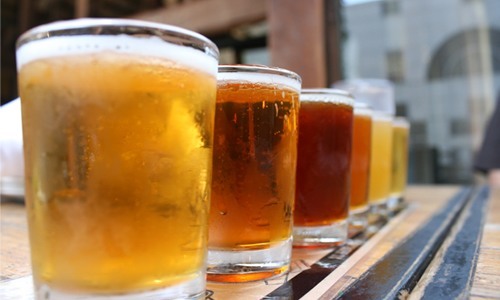

But many worry how the industry will fare in the future. Most growers were able to adapt to last year’s water shortages by relying more heavily on groundwater supplies and other sources, George said. So, Yakima Valley hops growers were able to “beat the 2015 summer heat,” NOAA said, but they may not be as lucky in the future.
The hops industry is struggling to keep up with demand as it is (There were major shortages of popular hops varieties in 2008 and 2012). Now a warming climate is increasingly threatening supplies.
Climate models project last year’s unusual warmth will be the “new normal” in the decades to come, Guillaume Mauger, a research scientist with the University of Washington’s Climate Impacts Group, told NOAA. And while total precipitation isn’t expected to change much, more and more winter precipitation will fall as rain rather than snow, decreasing snowpack and threatening the area’s water supply.
Oregon and Idaho are in a similar situation. Both states experienced record low snowpack, drought conditions and extreme heat. And other hops-producing regions are taking a hit too. Germany, which produces more hops than anywhere in the world, saw a 26 percent decrease in hops production last year due to drought, according to NOAA. This undoubtedly has those in the industry worried because the U.S. and Germany each contribute about one-third of global hops production.
Water scarcity is also a significant problem for the beer industry as water makes up 90 to 95 percent of all beer—yes, even craft beer. California brewers told NPR that the state’s drought has forced them to rely more and more on groundwater due to restricted river water supplies. And mineral-heavy groundwater supplies can produce unpleasant tastes in beers, the brewers lamented. One brewer described it as “like brewing with Alka-Seltzer.”
It was already bad enough that climate change will diminish worldwide supplies of chocolate, wine and coffee. Now, beer too.
YOU MIGHT ALSO LIKE
This Solar Road Will Provide Power to 5 Million People
Dr. Mark Hyman: Why Vegetable Oils Should Not Be Part of Your Diet
11 Reasons Why You Should Eat More Bananas
Michael Moore: 10 Things They Won’t Tell You About the Flint Water Tragedy, But I Will

 233k
233k  41k
41k  Subscribe
Subscribe 

